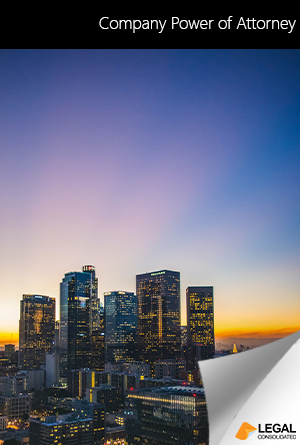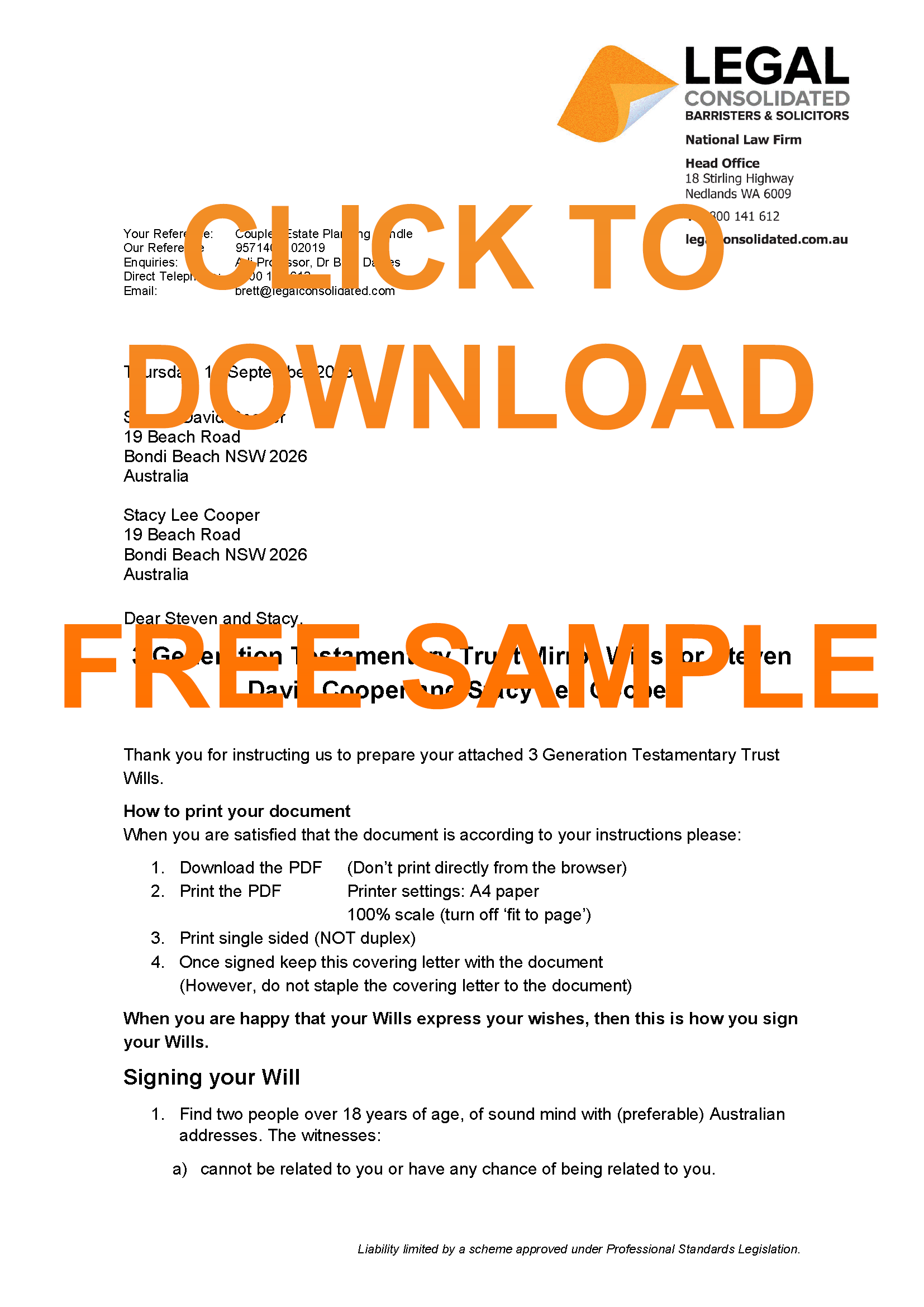
Company Power of Attorney
$380 includes GST
-
Corporate Power of Attorney Works in every Australian state and territory
Corporate POA vs Human POA:
- Corporate Power of Attorney – a company appoints an attorney (the attorney is another company or human)
- Enduring and Medical/lifestyle POAs – a human appoints an attorney (the attorney is only human)
A corporate power of attorney is given by a company. The company appoints a human or another company to act and sign documents on the company’s behalf. A corporate power of attorney authorises a person or persons to act on behalf of a company. The attorney is allowed to sign documents on the company’s behalf.
A company appoints a person called an “attorney”. Our corporate POA is flexible. The company appoints:
- A human
- Humans
- Another company
- Other companies
- Any combination of the above
In contrast, a human POA (enduring or medical) only appoints humans.
Director dies – corporate POA
The corporate POA provides continuity of company affairs and good stewardship. This is especially true if the directors are missing.
A company acts through its directors. Directors sign documents and make decisions for the company. What if the director is missing, sick or unable to act? The company loses its ability to act. Without a functioning director, a company is a ship without a rudder.
The company may appoint an attorney. This is via a corporate power of attorney. Under the corporate POA, the attorney has the power to do and sign things for the company. This includes signing documents and making company decisions.
Company dies when the director dies – corporate POA
What if the director is unavailable? What if your director is going on holidays? What if your director loses mental capacity or dies?
Fund Managers and SMSF require a corporate trustee POA
Some fund managers, especially for Self-Managed Super Funds, require all directors to sign to release monies. They often do not accept a human POA for the directors who are not able to sign.
For example, a company has two directors. The corporation’s law requires two directors or a director and a secretary to sign documents. What if one director loses capacity or is unavailable? The company is unable to sign documents and enter into agreements. Corporate POAs fix this.
Company constitution silent on corporate power of attorney?
An Australian company has legal capacity. A company is a person. (Sure, an unnatural person, but a person nonetheless.) Under the Corporations Act, a company is allowed to appoint an attorney. It is not necessary to have a specific power in the Company Constitution.
Our Corporate POA is drafted so that it does not matter if the company constitution is silent on delegated authority.
The corporate attorney can be a human or even another company.
Just use a ‘human’ Enduring POA from one of the directors?
- There are corporate POAs.
- And there are human POAs (enduring and medical).
Each State and Territory has its own set of documents for human POAs.
A human power of attorney gives your attorney legal authority to manage your assets and financial affairs. This is when the individual is unable to do so. This is for illness, accident and absence. A corporate power of attorney authorises a person or persons to act on behalf of a company. This includes signing certain documents on its behalf.
A ‘human’ POA does not work. A human power of attorney is not a substitute for a corporate power of attorney. This is a key reason why the corporate power of attorney is important.
Even if you, as a human, have granted a power of attorney to someone to manage your personal financial affairs, this does not extend to your company. The attorney cannot sign documents on your behalf in your capacity as director of a company.
A corporate power of attorney is granted to a person or persons. The company power of attorney is unique to the company.
Wife holds the husband’s POA and is also a director of the company
Q: The wife holds the husband’s POA. The wife is also a director of the same company. Does “he” still need a Company Power of Attorney?
A: I have highlighted your use of the word “he”. You make an error. Humans cannot make Corporate POAs. Only a company can create a Corporate POA. The husband can not make a Corporate POA. “He” can not make a Corporate POA. Instead, the Company makes a Corporate POA.
Yes, of course, the company should make a Corporate POA appointing their son or other trusted person.
On a second point, it is unusual to have both mum and dad holding directorships. For asset protection, two types of persons are directors of companies:
-
- people with no money
- stupid people
There are hints as you build your Corporate Power of Attorney. Telephone us for help.
If the director dies does the Corporate POA stop working?
No, it does not.
A Corporate POA, prepared by Legal Consolidated, is given by the company. It is not given by a director. Directors come and go. Directors are appointed and replaced. Directors die. The movement of directors has no bearing on a Corporate Power of Attorney.
You are, however, correct about ‘human’ enduring POAs. If the person making the ‘human’ enduring POA dies. Then, sure, the human POA ceases to exist. But we are not talking about ‘human’ POAs. We are talking about Corporate POAs given by companies. Do not get them confused.
In contrast, if the company ceases to exist then, of course, the company POA ceases to exist.
Business Structures for Personal Services Income, tax and asset protection
Family trust v Everett’s assignments
- Family Trust Deed – watch the free training course
- Family Trust Updates:
- Everything – Appointor, Trustee & Deed Update
- Deed ONLY – only update the Deed for tax
- Guardian and Appointor – only update the Guardian & Appointor
- Change the Trustee – change human Trustees and Company Trustees
- The company as Trustee of Family Trust – only for assets protection?
- Bucket Company for Family Trust – tax advantages of a corporate beneficiary
Unit trust vs Everett’s assignments
- Unit Trust
- Unit Trust Vesting Deed – wind up your Unit Trust
- Change Unit Trust Trustee – replace the trustee of your Unit Trust
- Company as Trustee of Unit Trust – how to build a company designed to be a trustee of a Unit Trust
Corporate structures and Everett’s assignments
- Partnership Agreement – but what about joint liability?
- Incorporate an Australian Company – best practice with the Constitution
- Upgrade the old Company Constitution – this is why
- Replace lost Company Constitution – about to get an ATO Audit?
Service trust and Independent Contractors Agreements
- Independent Contractor Agreement – make sure the person is NOT an employee
- Service Trust Agreement – operate a second business to move income and wealth
- Law firm Service Trust Agreement – how a law firm runs the backend of its practice
- Medical Doctor Service Trust Agreement – complies with all State rules, including New South Wales
- Dentist Service Trust Agreement – how dentists move income to their family
- Engineering Service Trust Agreement – commonly engineers set up the wrong structure
- Accountants Service Trust Agreement – complies with ATO’s new view on the Phillips case

